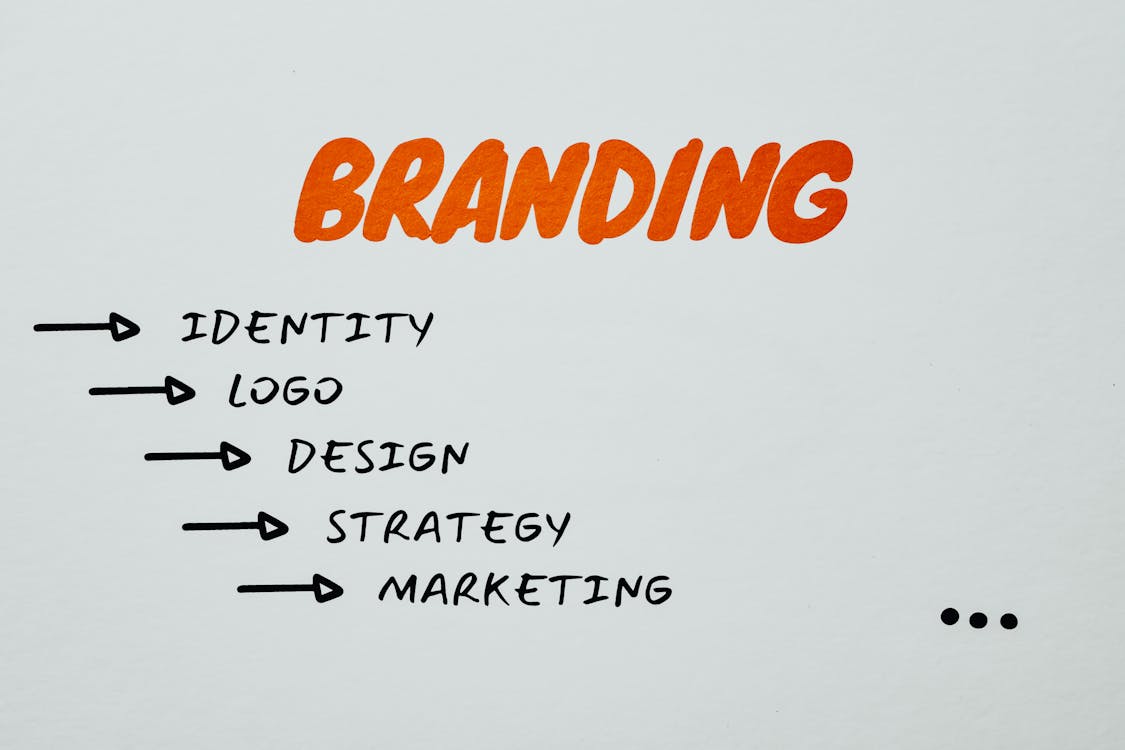In today’s highly competitive business landscape, developing a strong personal brand is crucial for business owners. A personal brand differentiates you from the competition, helps build trust with your audience, and can drive significant business growth. This blog post will explore the importance of personal branding, the steps to develop a strong personal brand, and how to maintain and evolve it over time.
Why Personal Branding Matters
Building Trust and Credibility
Trust is the cornerstone of any successful business relationship. A well-crafted personal brand helps establish your credibility and positions you as an expert in your field. When customers trust you, they are more likely to do business with you and recommend you to others.
Differentiation from Competitors
In a saturated market, standing out is vital. Your personal brand highlights what makes you unique. By showcasing your values, expertise, and personality, you differentiate yourself from competitors who may offer similar products or services.

Increased Visibility and Influence
A strong personal brand increases your visibility. As you build your brand, you’ll attract more media opportunities, speaking engagements, and partnerships. This visibility, in turn, enhances your influence in your industry and beyond.
Personal Fulfillment and Authenticity
Developing a personal brand that aligns with your values and passions leads to greater personal fulfillment. When your business reflects who you are, it feels less like work and more like an extension of yourself.
Steps to Develop a Strong Personal Brand
Self-Discovery: Understanding Who You Are
Before you can build a personal brand, you need to understand yourself. This involves introspection and honest self-assessment. Consider the following:
- Identify Your Strengths and Weaknesses: What are you good at? What do you need to improve? Acknowledge both your strengths and areas for growth.
- Determine Your Core Values: What principles guide your decisions and actions? Your values should be the foundation of your personal brand.
- Define Your Passion and Purpose: What drives you? What impact do you want to make? Your passion and purpose will fuel your brand’s authenticity and energy.

Define Your Brand Vision and Mission
Your brand vision is a long-term goal that reflects what you aspire to achieve. Your mission, on the other hand, is the purpose that drives your day-to-day activities. Together, they provide direction and motivation.
- Craft Your Vision Statement: Think about the legacy you want to leave. What change do you want to see in your industry or community?
- Create Your Mission Statement: Focus on the present. How do you plan to achieve your vision? What steps will you take?
Identify Your Target Audience
Understanding who your audience is and what they need is crucial. Your personal brand should resonate with them.
- Demographic and Psychographic Profiling: Consider factors such as age, gender, location, interests, values, and challenges. Create detailed profiles of your ideal customers.
- Research and Listen: Engage with your audience through surveys, social media, and face-to-face interactions to gain insights into their needs and preferences.
Develop Your Unique Value Proposition (UVP)
Your UVP is what sets you apart from others. It’s a clear statement that explains why your audience should choose you.

- Highlight Your Unique Skills and Experience: What do you offer that others don’t? Consider your unique blend of skills, experiences, and insights.
- Solve a Problem: Identify a specific problem your audience faces and demonstrate how you can solve it better than anyone else.
Create a Consistent Brand Identity
Your brand identity includes your visual and verbal elements. Consistency in these elements helps reinforce your brand.
- Visual Identity: This includes your logo, color scheme, typography, and overall design aesthetic. Ensure your visuals are professional and align with your brand values.
- Verbal Identity: This includes your brand voice and messaging. Develop a tone that reflects your personality and resonates with your audience. Your messaging should be clear, concise, and consistent across all platforms.
Build an Online Presence
In the digital age, your online presence is a significant part of your personal brand.
- Website: Your website is your digital home. Ensure it’s professional, user-friendly, and reflective of your brand. Include a blog to share your expertise and provide value to your audience.
- Social Media: Choose platforms where your audience is most active. Share valuable content, engage with your followers, and showcase your personality.
- Content Creation: Develop content that demonstrates your expertise and adds value to your audience. This could be blog posts, videos, podcasts, or social media updates.

Network and Collaborate
Building relationships with others in your industry can enhance your personal brand.
- Attend Industry Events: Participate in conferences, workshops, and networking events to meet like-minded professionals and potential clients.
- Collaborate with Influencers: Partner with influencers or other businesses to expand your reach and credibility.
- Engage in Community Building: Join online forums, groups, and communities related to your industry. Offer your expertise and build relationships.
Seek and Utilize Feedback
Feedback is essential for growth. It provides insights into how others perceive your brand and where you can improve.
- Request Feedback: Regularly ask for feedback from your audience, peers, and mentors.
- Act on Feedback: Use the feedback to refine and enhance your personal brand. Show your audience that you value their opinions by implementing their suggestions.
Maintaining and Evolving Your Personal Brand
Consistency is Key
Consistency builds trust. Ensure your brand elements, from your messaging to your visuals, remain consistent across all platforms.

- Regular Content Updates: Keep your content fresh and relevant. Regularly update your blog, social media, and other platforms with new content.
- Engage Regularly: Stay active on social media and other online communities. Consistent engagement keeps you top of mind with your audience.
Adapt to Change
The business world is dynamic, and your personal brand should be adaptable.
- Stay Informed: Keep up with industry trends and changes. Adapt your brand to stay relevant.
- Be Open to Evolution: As you grow and evolve, so should your personal brand. Allow your brand to reflect your personal and professional growth.
Measure Your Success
Regularly evaluate the effectiveness of your personal branding efforts.
- Set Measurable Goals: Define what success looks like for your personal brand. This could be increased website traffic, higher engagement on social media, or more speaking opportunities.
- Track Your Progress: Use analytics tools to measure your performance. Adjust your strategies based on your findings.

Personal Branding Pitfalls to Avoid
- Inauthenticity: Trying to be someone you’re not can be exhausting and unsustainable. Authenticity builds stronger connections.
- Over-Promotion: While it’s important to promote yourself, excessive self-promotion can be off-putting. Focus on providing value to your audience.
- Neglecting Offline Presence: While online presence is crucial, don’t neglect face-to-face interactions. Personal connections can be powerful.
Case Studies: Successful Personal Brands
Oprah Winfrey
Oprah Winfrey’s personal brand is built on authenticity, empathy, and empowerment. She has leveraged her personal story and values to build a brand that resonates with millions. Oprah’s brand extends beyond her talk show to her magazine, network, and philanthropic efforts.
Richard Branson
Richard Branson’s adventurous spirit and entrepreneurial mindset define his personal brand. He is known for his unconventional approach to business and his willingness to take risks. Branson’s brand is synonymous with innovation and fun, and it permeates all of his ventures, from Virgin Airlines to space travel.
Gary Vaynerchuk
Gary Vaynerchuk, or Gary Vee, is a prime example of leveraging social media for personal branding. His straightforward, no-nonsense approach, coupled with his extensive knowledge of digital marketing, has made him a go-to expert in the industry. Gary Vee’s brand is built on hustle, authenticity, and providing value.

Conclusion
Developing a strong personal brand as a business owner is a journey that requires self-discovery, strategic planning, and consistent effort. By understanding who you are, defining your vision, and consistently delivering value to your audience, you can build a personal brand that not only sets you apart but also drives your business forward. Remember, your personal brand is an extension of yourself – let it be authentic, dynamic, and impactful.
Building a personal brand is not a one-time task but an ongoing process. Stay true to your values, adapt to changes, and continuously seek ways to provide value to your audience. In doing so, you’ll create a lasting personal brand that stands the test of time and propels your business to new heights.







